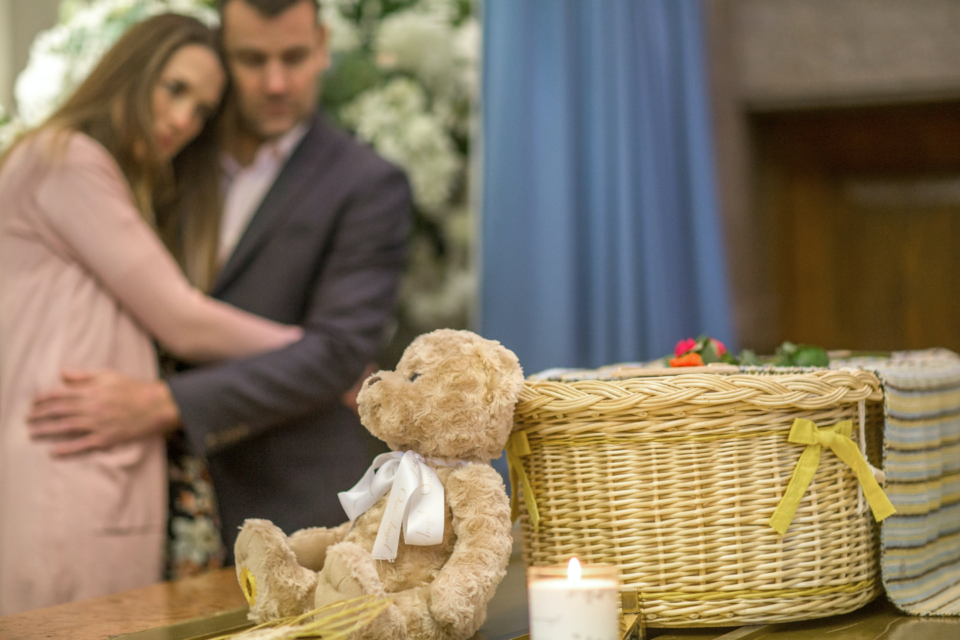In this article Marc Harder, Head of Bereavement Care & Hospital Liaison, Sands, explains the need for Baby Loss Awareness week. He highlights the inconsistency of support across services and draws attention to the National Bereavement Care pathway, to provide a framework and standardise bereavement care for all parents at all stages of pregnancy loss.
_______________________________________________________________________________________________________________________
The National Bereavement Care Pathway
Baby Loss Awareness Week (BLAW) takes place every year between the 9th and 15th October. This year it celebrates 20 years of:
- supporting bereaved parents and families and to unite with others across the world to commemorate their babies’ lives and lost pregnancies.
- raising awareness about pregnancy and baby loss.
- Driving improvements in care and support for anyone affected and in the prevention of pregnancy and baby loss.
You can get involved in this year’s BLAW by visiting https://babyloss-awareness.org. Baby Loss Awareness Week (BLAW) has been instrumental in breaking the silence around the devastation that the death of a baby brings, and the pain exacerbated by poor bereavement care.
This can occur at any point along the bereavement journey, from the very moment of first diagnosis and breaking of bad news, and, whilst approaches to bereavement care in the UK have greatly improved in recent years, inconsistency still remains, resulting in a postcode lottery for parents.
This inconsistency is also encountered between different types of loss, with many parents of babies who died in earlier trimesters reflecting on the lack of bereavement care compared to friends who lost a baby in their later stages of pregnancy; there is no hierarchy in grief and parents should be able to access high quality, sensitive and individualised care, regardless of circumstance, gestation, or postcode.
In July of this year, East Lancashire NHS Foundation Trust became the 100th Hospital trust in England to sign up to the National Bereavement Care Pathway (NBCP). Over 80% are now part of the programme, publicly committing to high standards of bereavement care after pregnancy loss or the death of a baby through Miscarriage, Termination of Pregnancy for Foetal Anomaly (TOPFA), Stillbirth, Neonatal Death and Sudden Unexpected Death of an Infant (SUDI) up to 12 months.
In Scotland, four early adopter boards are trialling the NBCP Scotland programme ahead of a second wave of boards joining later this year and a national roll out scheduled for winter 2023/24. In Wales and Northern Ireland, various groups and networks are working on creating a set of national standards for bereavement care after pregnancy or baby loss.
The NBCP provides the framework and tools to ensure that all health professionals are adequately equipped to provide excellent bereavement care during the immediate aftermath of pregnancy or baby loss.
NBCP core standards
The NBCP is centred on nine core bereavement care standards:
- A parent-led bereavement care plan is in place for all families, providing continuity between settings and into any subsequent pregnancies.
- Bereavement care training is offered to staff who come into contact with bereaved parents, and staff are supported to access this training.
- All bereaved parents are informed about and, if requested, referred for emotional support and for specialist mental health support when needed.
- There is a bereavement lead in every healthcare setting where a pregnancy or baby loss may occur.
- Bereavement rooms are available and accessible in all hospitals.
- The preferences of all bereaved families are sought, and all bereaved parents are offered informed choices about decisions relating to their care and the care of their babies.
- All bereaved parents are offered opportunities to make memories.
- A system is in place to clearly signal to all health care professionals and staff that a parent has experienced a bereavement to enable continuity
- Healthcare staff are provided with, and can access, support and resources to deliver high quality bereavement care.
Whilst the Ockenden Review has highlighted the importance of bereavement care standards, with more trusts acting on Immediate and Essential Action 13 by signing up to the NBCP, implementation and embedding of high quality standards would be accelerated further were pathway and its nine standards made mandatory by all UK governments. This would speed up implementation across all areas and lead to greater time, funding and resources being available to healthcare professionals to deliver them.
Trusts and boards require additional funding to fully implement all the standards within the NBCP, for example to ensure that every hospital has an appropriate bereavement suite, specialist staff and training.
We urge:
- rapid implementation across all four nations, with adherence to the nine NBCP standards mandated
- national guidance and frameworks to include and promote the nine NBCP standards, and
- regulatory bodies to make reference to the NBCP standards in inspection frameworks for gynaecology services, neonatal units and other settings as well as maternity services, as the death of a baby is not limited to a labour ward.
Midwives, healthcare professionals and students can access tools and resources and find out more about the NBCP by visiting www.nbcpathway.org.uk or www.nbcpscotland.org.uk
Marc Harder
Head of Bereavement Care & Hospital Liaison, Sands
October 2022



